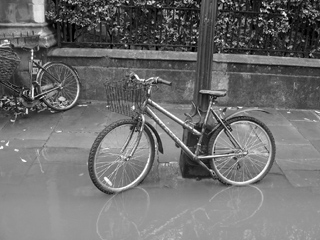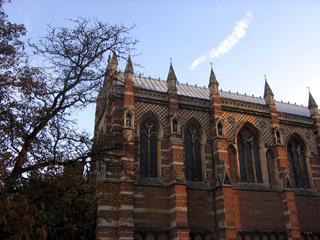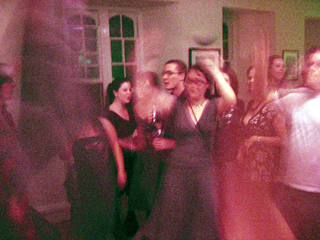There is some controversy in The Netherlands right now about electronic voting. A group has gotten hold of a voting machine, discovered that the physical and software security therein is very weak, and otherwise established the possibility that determined individuals could significantly impact election results through electronic tinkering.
The advantages of electronic voting are fairly numerous. Firstly, it could be made to happen more quickly. This may advantage the media more than anyone else, but it may as well be listed. Secondly, electronic devices could be made easier to use for people with physical disabilities and the like. Another advantage the system should have is increasing standardization between voting districts. Skullduggery involving dated or problematic machines in districts likely to vote in a certain way has been noted in a number of recent elections. Also, having an electronic record in addition to a paper one could allow for cross-verification in disputed districts. In cases where the results very starkly do not match, it should be possible to repeat the vote, with greater scrutiny.
The answer to the whole issue is exceptionally simple:
- You are presented with a screen where you select from among clearly labeled candidates, with an option to write in a name if that is part of your electoral system.
- The vote is then registered electronically, by whatever means, and a piece of paper is printed with the person’s choice of candidate, ideally in large bold letters.
- For an election involving multiple choices, each is likewise spelled out clearly. For instance, “I vote NO on Proposition X (flags for orphans).”
- The voter then checks the slip to make sure it is correct, before dropping it in a ballot box.
- These are treated in the standard fashion: locked, tracked, and observed before counting.
- The votes are tallied electronically, with a decent proportion (say, 20%) automatically verified by hand.
- If there is any serious discrepancy between the paper and electronic votes, all the paper ballots should be counted. Likewise, if there is a court ordered recount on the basis of other allegations of electoral irregularity.
Electronic systems have vulnerabilities including hacked polling stations; transmission interception and modification; as well as server side attacks where the data is being amalgamated. Paper systems have vulnerabilities relating to physical tampering. Maintaining both systems, as independently as possible, helps to mitigate the risks of each separately and improve the credibility of the process. It is like having both your bank and your credit card company keep separate records of your transactions. If they do not match, you have a good leg to stand on when alleging some kind of wrongdoing.
This system could use relatively simple electronic machines, and may therefore actually cost less in the long run than all paper balloting. Critically, it would maintain an unambiguous paper trail for the verification of people’s voting intentions. Companies that deny the importance of such a trail are either not thinking seriously about the integrity of the voting process or have self interested reasons for holding such a position.
[Update: 14 October 2006] The Economist has a leader on electronic voting machines and the US midterm elections. They assert, in part:
The solutions are not hard to find: a wholesale switch to paper ballots and optical scanners; more training for election officials; and open access to machine software. But it is too late for any of that this time—and that is a scandal.
Quite right.



